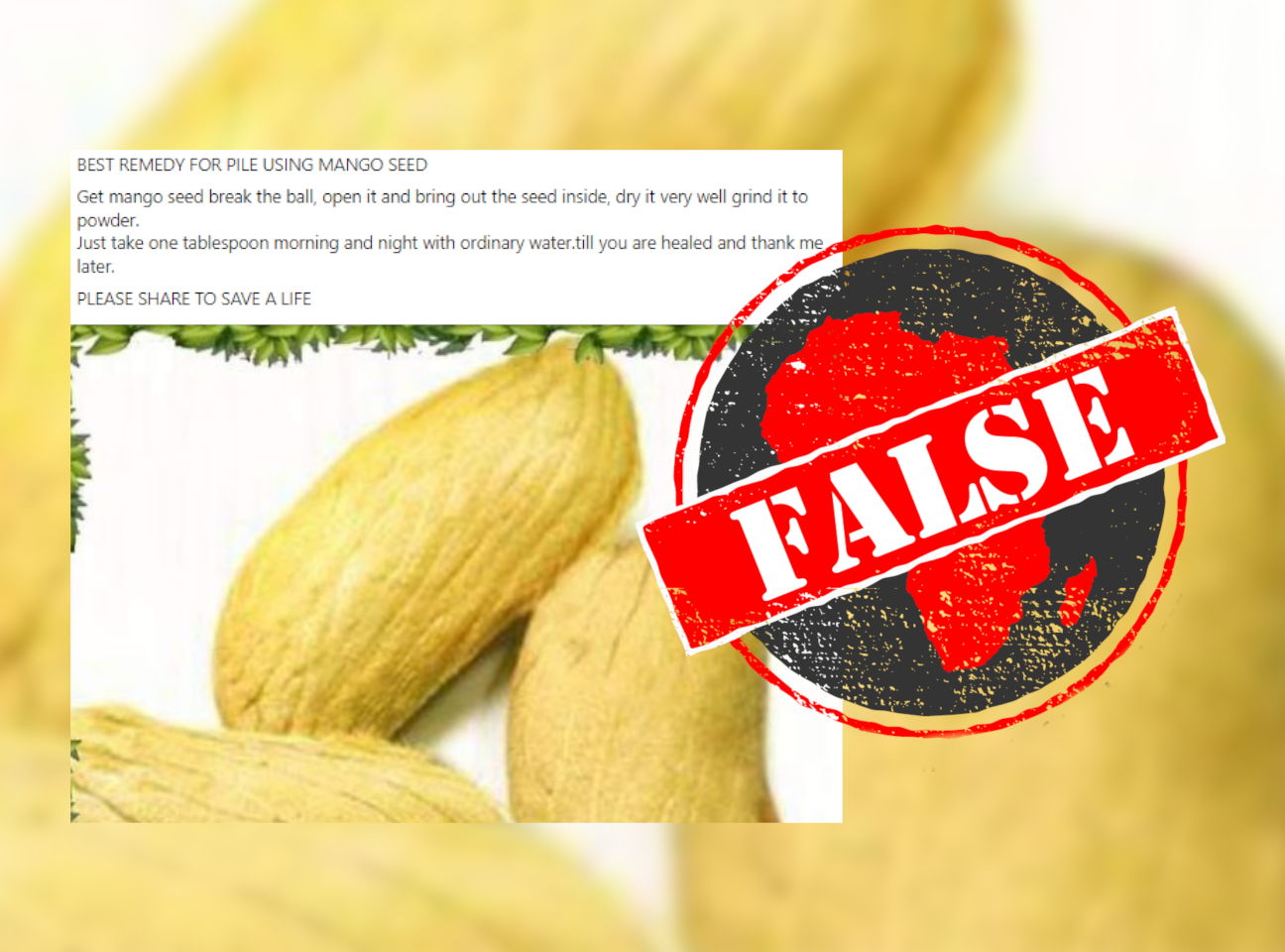“BEST REMEDY FOR PILE USING MANGO SEED,” reads the headline of a message posted on Facebook in Nigeria.
It claims taking a powder made from mango seed is a remedy for haemorrhoids and adds: “PLEASE SHARE TO SAVE A LIFE.”
It describes how to prepare the powder and how much to take: “Get mango seed, break the ball, open it and bring out the seed inside, dry it very well grind it to powder. Just take one tablespoon morning and night with ordinary water till you are healed and thank me later.”
In the past, Africa Check has debunked a number of herbal remedies meant to treat haemorrhoids, and all concluded with “see a doctor” instead.
But is this mango seed concoction a remedy for haemorrhoids? We checked.

Treatable, see a doctor
Haemorrhoids, also called piles, are swollen veins in the lower rectum and around the anus. When the blood vessel walls stretch thin they can become irritated.
Dr Joanah Ikobah, a consultant paediatric gastroenterologist and senior lecturer at the University of Calabar in southeastern Nigeria, told Africa Check haemorrhoids can be treated medically or with surgery in advanced cases. But they should be examined by a doctor first.
“No, no one should use this to treat haemorrhoids, there are suppositories that are available to treat piles. A doctor should examine [the patient] and prescribe treatment,” she said.
She added: “it is better to see a doctor on time because if the haemorrhoid is not well taken care of, it can become thrombosed and refuse to go back inside and the patient may end up in surgery.”
A thrombosed haemorrhoid is when a blood clot, or thrombus, forms within the haemorrhoid, which can be very painful.
Lifestyle changes such as eating a fibre-rich diet, drinking plenty of fluids, not straining when using the toilet and being more active can help reduce the risk of developing haemorrhoids.
But there is no evidence that mango seed powder will treat the condition.
Republish our content for free
For publishers: what to do if your post is rated false
A fact-checker has rated your Facebook or Instagram post as “false”, “altered”, “partly false” or “missing context”. This could have serious consequences. What do you do?
Click on our guide for the steps you should follow.
Publishers guideAfrica Check teams up with Facebook
Africa Check is a partner in Meta's third-party fact-checking programme to help stop the spread of false information on social media.
The content we rate as “false” will be downgraded on Facebook and Instagram. This means fewer people will see it.
You can also help identify false information on Facebook. This guide explains how.


Add new comment